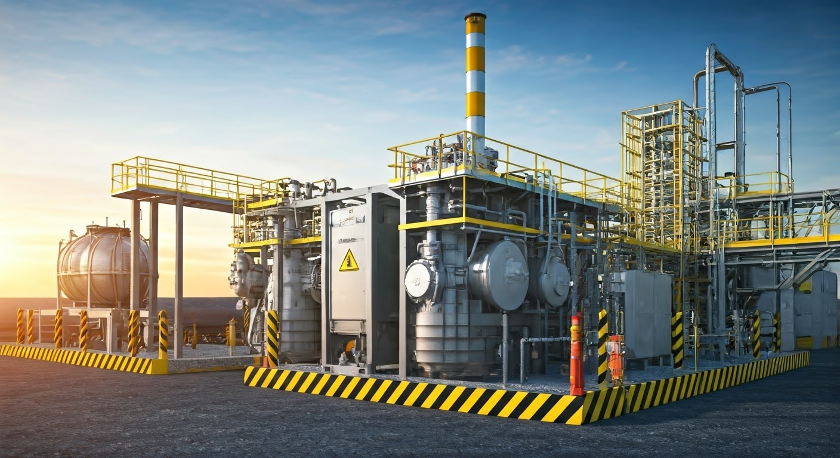How UKEx Classification Supports Sustainable Practices
Key Highlights
- UKEx classifications help businesses focus on safety and sustainability in hazardous areas. This reduces risks and boosts efficiency in operations.
- Resource optimization: Avoiding over-classification helps save money on machinery and infrastructure. It also lowers carbon footprints, helping reach net-zero goals.
- The use of green technologies, like renewable energy systems, is safer and easier thanks to UKEx guidelines.
- UKEx matches future ISO/IEC standards. This helps industries, like the chemical sector, adapt to regulations smoothly.
- It encourages sustainable practices through selecting the right equipment and managing resources responsibly.
Introduction
Sustainability is becoming very important in Great Britain. Policies like the Agriculture Act and the plan for environmental land management are changing how industries work. The Sustainable Farming Incentive shows how different sectors are moving towards a more eco-friendly future. With climate change challenges, these industries need to find a way to make money while adapting. The UKEx classification is key for helping sectors like agriculture and manufacturing adjust in a responsible way. It helps keep safety in hazardous zones and connects sustainability with their work needs smoothly.
Understanding UKEx Classification in Hazardous Areas
Hazardous areas need strict safety rules. The UKEx classification helps identify risks in a clear way. It provides steps for checking places where flammable gases or other dangerous substances are found. By having well-defined categories, UKEx helps industries use the right methods to lower risks.

UKEx also looks at sustainability. It pushes for using energy-saving equipment and eco-friendly ways of working in different industries. This means the classification is important not just for following rules but also for helping businesses operate in a greener way.
The Role of UKEx in Promoting Safety and Sustainability
Ensuring safety is key to UKEx classification. This system finds the exact risks in dangerous areas. Because of this, industries must follow strict safety protocols. These rules help control sources that can cause fire or explosions. As a result, UKEx guidelines make workplaces safer for workers and nearby communities.
UKEx also cares about sustainability. It encourages the use of energy-saving technologies, helping businesses lower their carbon footprint. UKEx works alongside programs like the Woodland Carbon Code and ELMS, supporting wider environmental goals.
Moreover, its push for sustainable practices helps industries cut down on waste and choose longer-lasting equipment. This mix of safety and eco-friendliness ensures businesses follow the rules while facing climate change challenges. UKEx shows that we can protect people and the planet together.
Impact of UKEx on Equipment Selection and Use
Choosing the right equipment in dangerous areas is about safety and sustainability. UKEx classifications help industries pick tools and machines that meet strict safety rules. For instance, explosion-proof electrical systems recommended by UKEx reduce risks and ensure reliability even in unstable conditions.
UKEx classifications also affect sustainable practices. Industries are urged to select resource-efficient equipment that lowers energy use and cuts carbon emissions. This careful choice connects business goals with taking care of the environment.
Additionally, UKEx supports using long-lasting equipment, which helps reduce waste and costs over time. From hybrid systems to renewable energy technologies, the classification highlights balancing functionality with long-term sustainability. It’s not just about reducing immediate risks—it’s about creating greener and safer industry standards.
Resource Optimization through UKEx
Optimizing resources is an important part of the UKEx guidelines. These guidelines help industries save money and lower carbon emissions. UKEx focuses on clear risk classifications. This prevents the need to over-specify equipment, which can raise costs and increase carbon footprints.
This careful approach helps businesses select practical and efficient equipment that meets their needs. It also encourages resource savings and better sustainability. UKEx shows that by streamlining operations with specific strategies, companies can create safer environments and adopt eco-friendly practices.
How Over-Classification Can Lead to Increased Carbon Footprint
Over-classification in dangerous areas can cause high costs, extra carbon emissions, and waste. When businesses miss the mark in measuring risks, they buy equipment that is much more than they need. This results in wasting resources.
Key impacts of over-classification:
- Higher carbon emissions because of strong machinery and building materials that are not really needed.
- Unneeded energy use, raising operational costs and carbon emissions.
UKEx’s method for resource optimisation helps solve these problems. By matching the gear needed to actual risk levels, companies can cut waste and reach sustainability goals. This careful approach to classification sets a standard for smart resource use and protecting the environment.
Practical Steps to Optimize Resource Use with UKEx Guidelines
Using resources effectively under UKEx means planning carefully and taking practical steps. Businesses need to look at the risks they face and use equipment that works well for their needs without cutting corners. Using renewable energy and hybrid systems can also help make operations more sustainable.
For guidance, the UKEx text table shows important optimization methods:
UKEx Guidelines | Optimisation Strategies |
Accurate Risk Assessment | Match equipment specifications carefully to hazard levels. |
Energy-Efficient Systems | Choose tools with better energy ratings. |
Renewable Integration | Use hybrid systems for greener energy. |
Durable Equipment | Buy long-lasting machines to reduce overall costs. |
Following these guidelines helps ensure safety and promote eco-friendly practices in dangerous areas.
Regulatory Adaptability and UKEx
Regulations are always changing, making it hard for industries to keep up. UKEx stands out as a smart system ready for new ISO/IEC standards. Its flexible design helps industries add new rules more easily.

The chemical sector gains a lot from this flexibility because changing regulations affect safety and sustainability. UKEx promotes following global standards, making it easier to make updates and ensuring smooth practices across operations.
Aligning UKEx with Upcoming ISO/IEC Standards
The new ISO/IEC standards show a move towards better safety rules around the world. UKEx’s support for these standards makes it easier for industries to stay up-to-date.
This flexibility helps sectors that often face policy changes. UKEx helps businesses get ready for future needs without causing disruptions. It strengthens compliance processes while keeping attention on the environment.
Additionally, working with ISO/IEC helps UKEx promote standardisation in Great Britain. This leads to safer and more sustainable practices. This teamwork shows a new way to deal with challenges in the industry.
Benefits of Regulatory Adaptability for the Chemical Industry
The chemical industry needs to meet strict safety requirements in risky areas. UKEx’s ability to adjust to regulations helps make it easier to move to new standards like ISO/IEC rules.
With its flexible style, UKEx helps make regular updates to equipment while also keeping sustainability in mind. This balance is really important in an industry that relies on accuracy and rules.
In the end, UKEx offers clear benefits like fewer fines, better safety measures, and greater environmental results for chemical activities. It is a key tool for dealing with the complicated rules.
Integration of Green Technologies in Classified Zones
The rise of green technologies brings new chances for businesses in classified areas. UKEx helps to use renewable energy systems, hybrid technologies, and eco-friendly tools safely in dangerous places.
These new ideas help businesses lower carbon emissions and fight climate change, while keeping safety in mind. UKEx shows that we can use environmental technologies without adding risk or slowing down work.
Safe Deployment of Renewable Energy Systems
Deploying renewable energy in risky places needs strong safety measures. UKEx is at the forefront, making sure all installations follow strict rules that support climate goals.
UKEx promotes the use of solar panels in sensitive areas and wind power systems. This approach helps find a balance between using green technology and keeping things safe. They make it easier to use these new systems safely and accessibly.
By supporting renewable energy, UKEx fights climate change. Their system decreases the reliance on fossil fuels and sets new standards for being sustainable in dangerous areas.
Case Studies: Successful Green Tech Integration in UKEx Zones
Many industries show how UKEx helps bring in successful green tech integration. In risky areas, renewable energy systems like hybrid wind and solar setups are now working safely and effectively.
A chemical company in the UK recently started using green technologies while following UKEx rules. They used solar-powered systems in certain zones and greatly reduced their carbon emissions.
These examples start a big change in different sectors. With UKEx, adding green tech is not just possible; it’s a move toward a safe and sustainable industrial environment.
Conclusion
In conclusion, UKEx classification is very important for promoting sustainable practices in dangerous areas. It helps use resources better and makes sure that equipment meets strict safety rules. This not only cuts down on extra carbon emissions but also helps bring in green technologies. As rules change, UKEx is ready to adapt to new ISO/IEC standards. This means industries can switch easily while still following the rules. The focus on sustainability shows through successful examples of using renewable energy in classified areas. These cases prove that safety and care for the environment can work together. If you want to learn more and put these practices into action, think about contacting someone for personalized help with UKEx classification.
Frequently Asked Questions
What is UKEx classification and why is it important for sustainability?
UKEx classification finds risks in dangerous areas to keep people safe. It also promotes sustainable practices, such as using energy-efficient equipment. This approach helps reduce waste and carbon emissions. It matches bigger regulatory goals and makes sure that important industries follow the rules.
